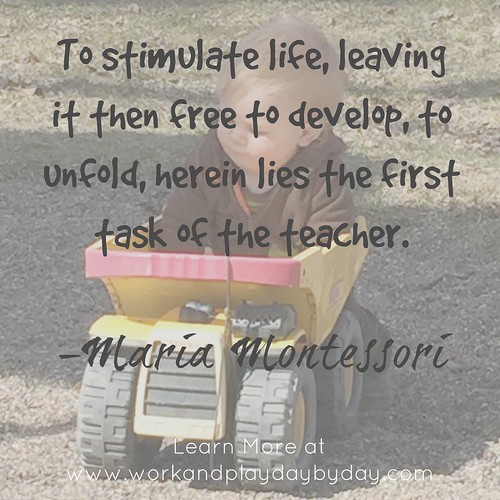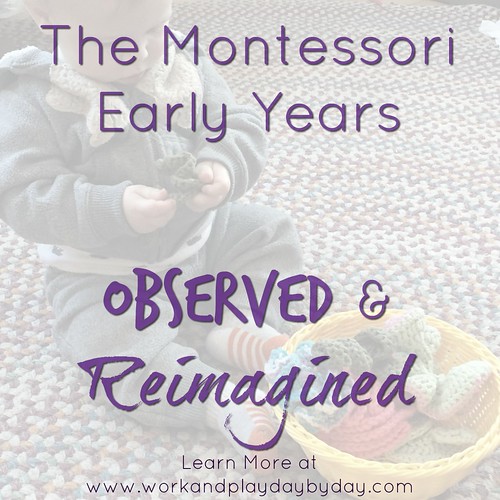Hey, Heidi has six kids AND a degree … she’s got this parenting/homeschool/teacher thing figured out by now. Right?! I think sometimes we need other moms to have it figured out because it gives us hope that we can figure it out too. Today is about some honesty about just how much I don’t have figured out. How easy it is for me to loose sight of even a well-developed philosophy of parenting and family life. But, hey…good news! If I don’t have it figured out…and you don’t have it figured out…then doesn’t that make us better companions on this journey? I’m inclined to think that it does.
The time since Tomas was born has been filled with a lot of ups and downs for our whole family. Many things that we have taken for granted with a baby in the house simply didn’t hold true for him. From the NICU to feeding struggles and rare disease to delayed development, I found myself questioning more than I knew a mom of six living children could.
As his first birthday approached, I was increasingly frustrated not so much by where he was developmentally and health-wise but how he was progressing. Which was not at all. Every child is different and certainly that has held true for all of my other children. That being said, development is a continuum that we expect a baby to follow along in fits and starts throughout the early years. My mom instinct said that something was holding Tomas back. To reference the quote from Maria above, he seemed trapped more than free. I set out to reassess where we were and where I thought we should be, but most importantly…what changes we needed to make to get there.
One of my favorite education quotes (which is mostly unattributed but shows up in memes all the time) is, “You can’t take care of the Bloom stuff, until you take care of the Maslow stuff.”
Maslow is most known for his hierarchy of human needs and proposes that self-actualization (reaching full potential as a human being) can only be considered in proper order relying on things such as confidence, belonging, comfort, safety, and more. At the bottom of it all are our physiological (food, shelter, clothing, etc) needs. Bloom is known for his taxonomy of thinking moving from simple recall to increasingly more complex levels of higher thinking and application.
This is pretty common sense in applying to education, in that, if you try to teach a first grader on Monday who hasn’t eaten since they last had school lunch on Friday, you aren’t likely to be very successful. That student isn’t going to be able to do even a minimal amount of quality work and definitely is going to be far from reaching his or her potential until his hunger for food has been met.
Spend any time on Instagram or Montessori mommy blogs and it is easy to assume that Montessori approaches automatically equal “advanced” babies who are reaching more of their potential sooner. Certainly in my experience that has held true.
Yet when I think about this a little deeper, it only does that because society doesn’t generally ask very much of babies. Babies that are allowed to follow their own development and given the environmental tools and support to do so (such as those exposed to Montessori and RIE methods), do tend to appear advanced to the naked eye. Probably because we underestimate what all young children are capable of, not just babies. In fact, some people promote the exploitation of Montessori education because it “makes” advanced preschoolers. They want to have more Montessori preschool education available so that students will be “more academically ready” for the rigors of modern elementary school.
Not cool.
Because it isn’t the application of a Montessori checklist that creates the appearance of advanced students. What I believe outsiders are actually observing is that Montessori student’s Maslow stuff is being very well provided for in a way that builds their Bloom stuff far sooner. Montessori students are taught how to meet their own physiological needs, which builds confident and secure individuals. Not advanced students. Confident students.
Sad that equals advanced these days.
So I set to watching. What could Tomas do? What was he interested in? Where was he struggling And most importantly, how could we prepare and adapt his environment to support him?
I started at the beginning with eating, sleeping, and self care. I brought out the weaning table, even though it made me nervous to allow him more access to the floor (where he might find big kid non-Tomas food before we had a chance to clean it up). It opened up the risk of accidental ingestions, and we have had a couple.
Which has in turn made my older children more aware and responsive to messes.
Which lightens my load.
Which increases the level of peace in the entire household.
There is a saying that if mama ain’t happy, ain’t nobody happy. The truth is, in family living that holds true for everyone. If one person is not in a peaceful place, then the family will not be in a peaceful place. The more people in the family, the more this holds true.
I also gave Tomas spoons and plates and all the normal “self-weaning” stuff that I’d done with the other kids. It always seemed silly because he’s never been able to eat off of my plate and his initial portions with new foods have to be carefully controlled. But why should that mean he couldn’t still do it himself? The simple answer is that it doesn’t.
In other areas, we talked about his sleeping area and made some changes to his bedtime routines and our responses to him during the night. I started talking to him more about his routines such as getting dressed and changing diapers, putting shoes on and wearing coats. That all probably sounds silly, but its hard to explain just how quickly those things become less of a priority when you are dealing with medical struggles. You just want a diaper change to be a diaper change. It’s a problem you actually know how to solve! Truthfully, its like being in survival mode for so long you forget to step back and realize this is a child in front of you.
And Tomas blossomed.
He went from refusing to cups, to refusing bottles. I put them all away last weekend. When I ask if he wants to go outside, he goes and gets his shoes. When we come back in, he knows where to put them away.
Because I made an intentional effort to pay attention and stop doing things for him, he discovered he could do it for himself. His entire life had been so crazy, I’d never made the time (or in some cases had the time!) to sincerely evaluate his environment. I looked for opportunities to allow him to focus on activities for longer and to explore his independence. To observe him, while he observed the rest of us.
At the end of the day, this is Montessori. Montessori is about observing and preparing an environment for the child to build on their own successes and correct their own failures with proper support. People ask me all the time what to do first, which usually translates into what to buy first. I myself perpetuate the myth of this by proposing there is a “quick” way to start Montessori. In reality, however, your family already has all the tools you need to develop your child in a Montessori.
You have a child.
Who has a set of skills and a set of needs. The best doctors, textbooks, methods, curriculums cannot tell you what those needs and skills are. Only your eyes and your heart can tell you what your child needs. Montessori doesn’t set out to develop extra smart or advanced children, it seeks to develop capable and confident individuals based on exploring their gifts and talents. Sometimes we need the assistance of those outside “professionals” to meet our children’s physical needs and there is no reason to make excuses for doing so (and I am often asked to make those excuses). That being said, we can only help our children move forward by looking at where they are and finding the tools that will support that development.
What is the hardest part of learning to observe your child? Have you been surprised by anything you learned when you were able to successfully step back for a moment? I’d love to hear your experiences and answer any questions you have about learning to observe or how to make changes based on what you see.



Recent Comments